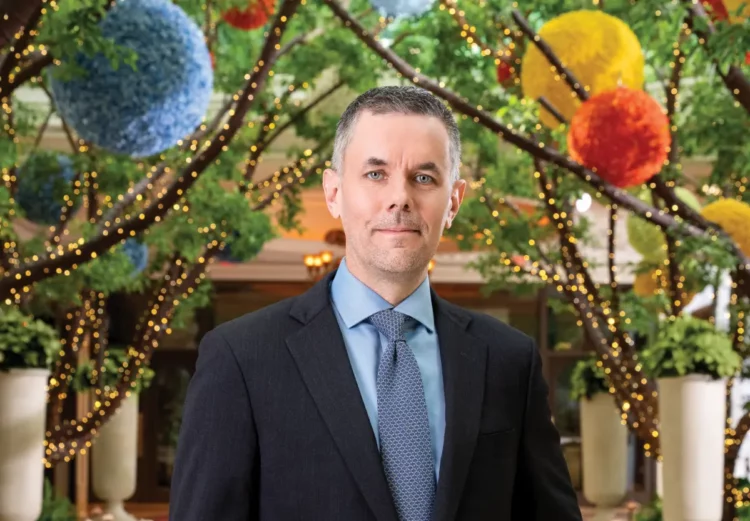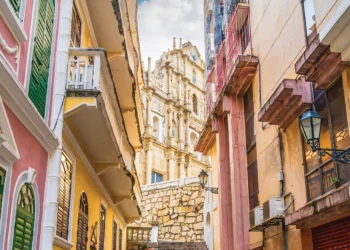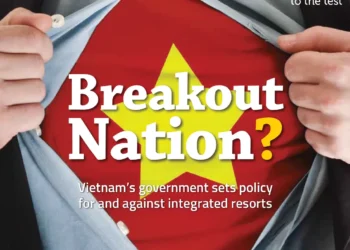IAG sat down in the luxurious surroundings of Wynn Las Vegas for a rare and wide-ranging interview with Wynn Resorts CEO Craig Billings, discussing Wynn’s operations and ambitions across the globe.
It’s an incredible time for Wynn Resorts, globally. The company started with Wynn Las Vegas in 2005, added Wynn Macau the following year, and its second Macau property – Wynn Palace – a decade later.
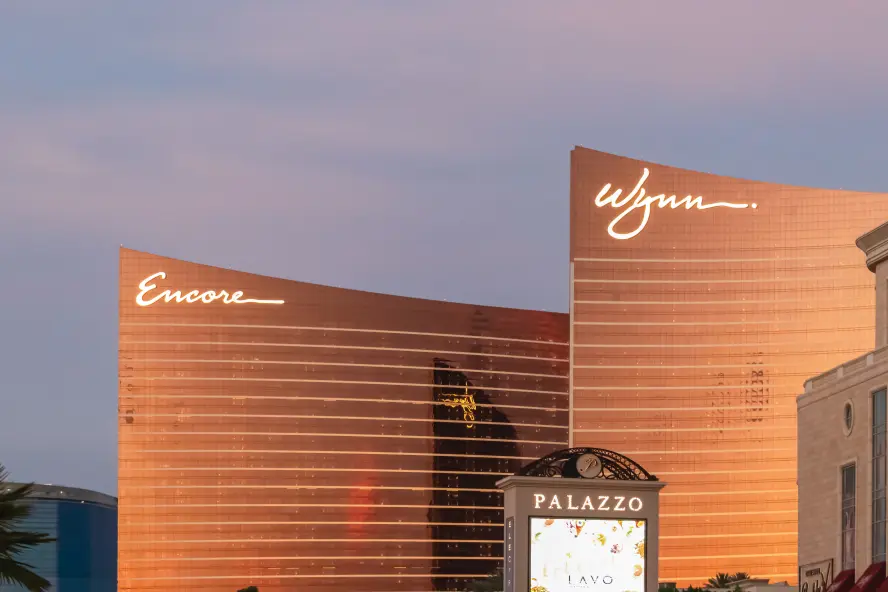 Expansion has continued relentlessly. Encore Boston Harbor was added to the portfolio in 2019, and Wynn Al Marjan Island, the first ever integrated resort in the Middle East, was announced to the world in 2022 and is planned to open in early 2027. After its first 20-year concession in Macau expired, Wynn was awarded a second concession, this time for 10 years (in accordance with revised Macau government policy) to run to the end of 2032. Wynn recently announced the acquisition of London boutique high-end casino Aspinalls from Crown Resorts.
Expansion has continued relentlessly. Encore Boston Harbor was added to the portfolio in 2019, and Wynn Al Marjan Island, the first ever integrated resort in the Middle East, was announced to the world in 2022 and is planned to open in early 2027. After its first 20-year concession in Macau expired, Wynn was awarded a second concession, this time for 10 years (in accordance with revised Macau government policy) to run to the end of 2032. Wynn recently announced the acquisition of London boutique high-end casino Aspinalls from Crown Resorts.
There is no shortage of further aspirations. Wynn was actively seeking an integrated resort in Japan during that country’s promotion of licenses and has made no secret of its interest in an IR in Thailand. It is also seeking a license in New York City, where it has already picked out a site in lower Manhattan, right next to the iconic Javits Center.
I recently had the pleasure of sitting down in the luxurious surroundings of Wynn Las Vegas for a rare and wide-ranging interview with Wynn Resorts CEO Craig Billings, discussing Wynn’s operations and ambitions across the globe.
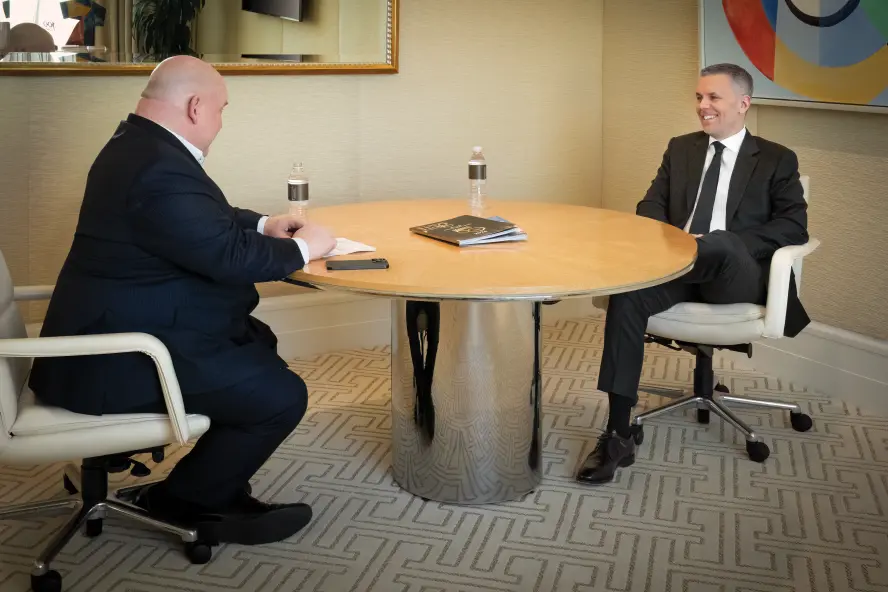
Andrew W Scott (AWS): Thank you for speaking with Inside Asian Gaming, Craig. You’ve been CEO of Wynn Resorts for three years now. What do you feel have been the main accomplishments of Wynn in that time?
Craig Billings (CB): Whenever we think about the business, we always start with the components that are bedrock to our brand, and which should frankly never change. And then ask, how we can evolve? So, beyond the obvious major accomplishments with getting the Macau concession renewed and getting the best development project in the industry in the UAE – which are significant accomplishments in and of themselves – we have done a ton of evolution that has manifested itself, particularly in Las Vegas, in an even more premium position. We have completely upended and relaunched our casino loyalty program in both Macau and Las Vegas. We imparted machine learning to our CRM. We’ve launched a number of initiatives to return a sense of showmanship to casino hosting and to appropriately host our high value non-gaming customers.
On the food and beverage side in Las Vegas, we’ve addressed a completely new demographic: the fun seeking, more aspirational customer. We’ve used F&B like Casa Playa, Delilah and the soon to open Zero Bond as tools to continue to evolve the brand. In Macau, on the F&B side, we kind of completely reinvented it. We went from an extreme focus on haute cuisine, which was incredibly important for the junkets, and moved to lifestyle and more regional cuisines, and that is part of the reason that we’ve been able to drive the market share that we have.
Lastly, I would say we have learned to program these places in a very different way than they have been historically programmed. Historically, programming would be, “Who am I going to have in the theater on Friday night?” It was very transactional. And what we’ve aggressively done over the course of the past several years is program things that are our own intellectual property. Whether that’s large-scale classic and hypercar shows, large-scale food festivals or golf in Macau, we’ve learned to program with things that cannot be replicated.
All of this ultimately brings itself together as making the brand even more premium and making it resonate even more with those who want to see and be seen, which often also means those who are younger. I think we’ve taken what was the gold standard in the market and, frankly, put it on steroids. You can see what it’s done in terms of pricing power on our rooms here [in Las Vegas], and you can see what it’s done in terms of our ability to be in the same market share range in Macau as in the junket-centric days.
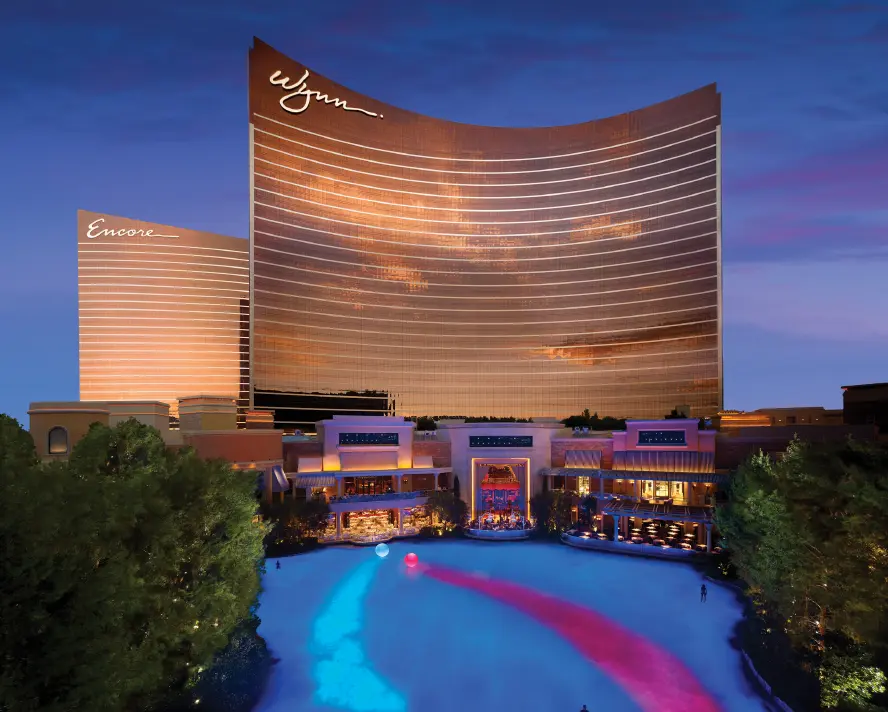 AWS: How do you feel the global industry is placed now in the first quarter of 2025, compared to pre-COVID?
AWS: How do you feel the global industry is placed now in the first quarter of 2025, compared to pre-COVID?
CB: I look at the business regionally and by pockets, based on region. So, I think if you start with the US, for years and years, the regional gaming business was a greater-than-GDP growth business because it was a business where you took a very similar product and expanded it into new markets. So, you were able to grow faster than GDP. I’m not sure that’s the case anymore. I think that has played out and now you have a series of infill projects that are really dependent on stealing market share, not to mention the potential impact of online gaming.
Vegas is different. Vegas has a whole bunch of tailwinds, mostly non-gaming, that ultimately drive diversification of demand, and some of that finds its way onto the gaming floor as well. So, I exempt Vegas from that. Outside the US, other than really mature markets like Australia and Canada and some of the European markets, the supply of high-quality integrated resorts is much, much less than the demand for high quality integrated resorts, and that creates a whole bunch of opportunities. I’m sure we’re going to talk about the UAE, but it’s why you can see the industrial logic of the UAE. And there are certainly places in Asia where that’s the case as well.
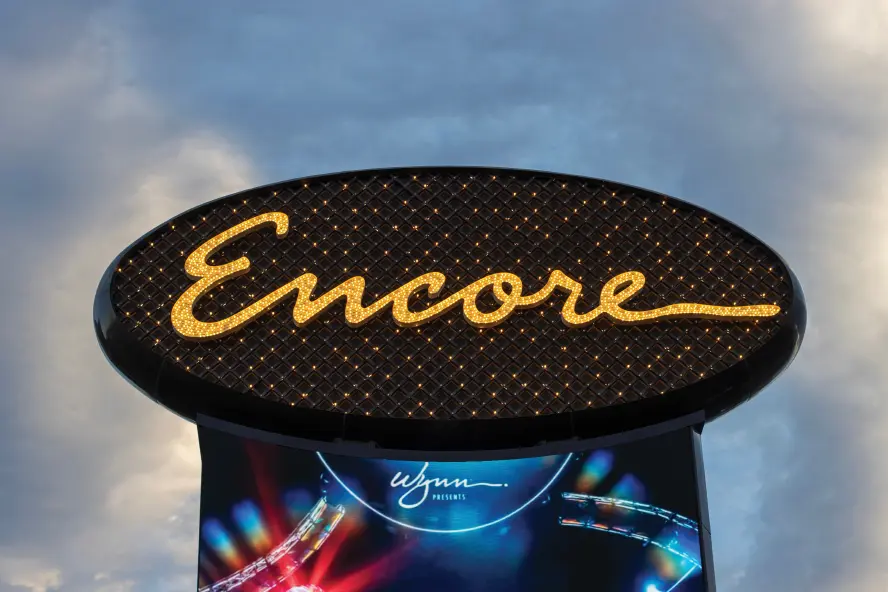 AWS: Regarding the US, it’s currently a time of concern about inflation. America feels a little bit unstable, economically, and yet Vegas seems to be on steroids, to use your expression from before. That’s quite an interesting juxtaposition.
AWS: Regarding the US, it’s currently a time of concern about inflation. America feels a little bit unstable, economically, and yet Vegas seems to be on steroids, to use your expression from before. That’s quite an interesting juxtaposition.
CB: Certainly, that’s true. Vegas is an amazing place and, although the narrative oftentimes about Vegas is how the city reinvents itself, that’s actually not quite the case. What Vegas does an incredibly good job of is tacking on incremental sources of demand that continue to cause it to thrive and dispensing with trends that do not drive demand. Most recently that’s been sports, which has been a significant tailwind to the market.
And you have maybe less-than-ideal conditions in some neighboring and adjacent states that have made Vegas comparatively more attractive, even from a locals and residential perspective.
Our job at Wynn is to appeal to a very specific segment of the market. We have 4,700 hotel rooms, which makes the ADRs [average daily rates] we drive look pretty incredible, but we’re also only 4,700 rooms of 150,000. So, we appeal to a very specific segment of the market, and that customer tends to be the most resilient, the most levered to wealth, as opposed to income. I’m not an economic forecaster, so I can’t tell you what’s going to happen to US GDP, but I can tell you that our customer is going to be the most resilient in the market.
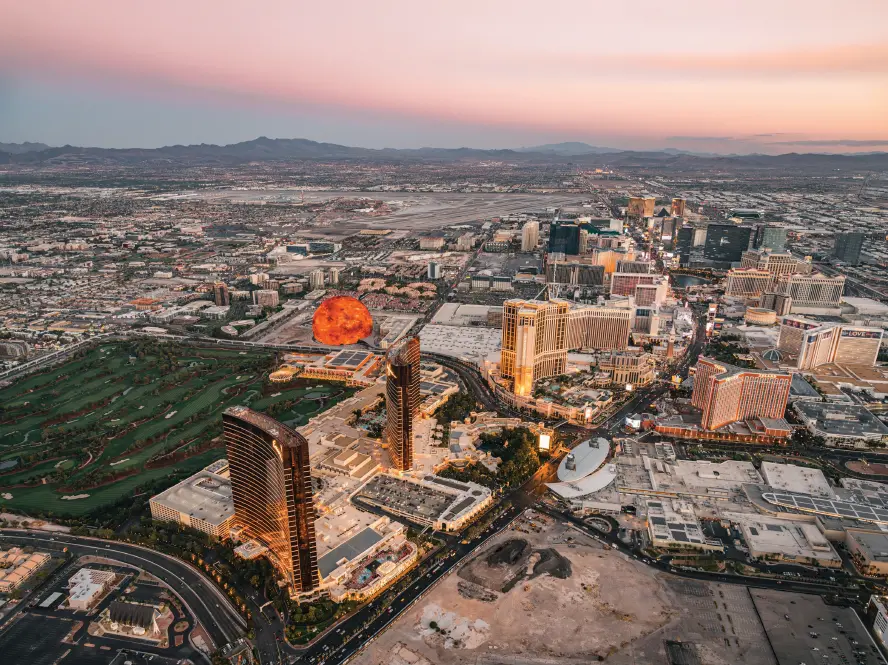 AWS: You mentioned iGaming before, and I’d like to talk about that. There is casino iGaming now in seven US states, and online sports betting is widely prevalent. Do you see a new round of states legalizing iGaming, and what’s your view on the future of iGaming in the US?
AWS: You mentioned iGaming before, and I’d like to talk about that. There is casino iGaming now in seven US states, and online sports betting is widely prevalent. Do you see a new round of states legalizing iGaming, and what’s your view on the future of iGaming in the US?
CB: It’s a complicated subject. I do believe in cannibalization. I think that for a certain segment of your database, if you’re a land-based operator, the customer appeal of being able to stay at home and play online is real.
You have all these states, particularly in the Midwest where gaming proliferated in the early 1990s, that have been competitive but stable markets for many, many years, and some of those states are contemplating letting big, scaled new entrants come into the market. That is going to cause disruption – there is no doubt in my mind. And there will be winners and losers at the end of the day. For the losers, it’s a structural change in their business – let’s say 15% of your revenue goes away. You’re going to have to make structural changes in how you run your business. You’re not just going to have the shareholders make up the difference, if you will.
So, I think ultimately you have to be very careful because it can lead to lower employment, and employment in our industry is obviously incredibly important. So, I do think there’s disruption. If you’re a big omnichannel operator it could certainly be positive for you but there are 990-something commercial casinos in the US and many of them aren’t big omnichannel operators.
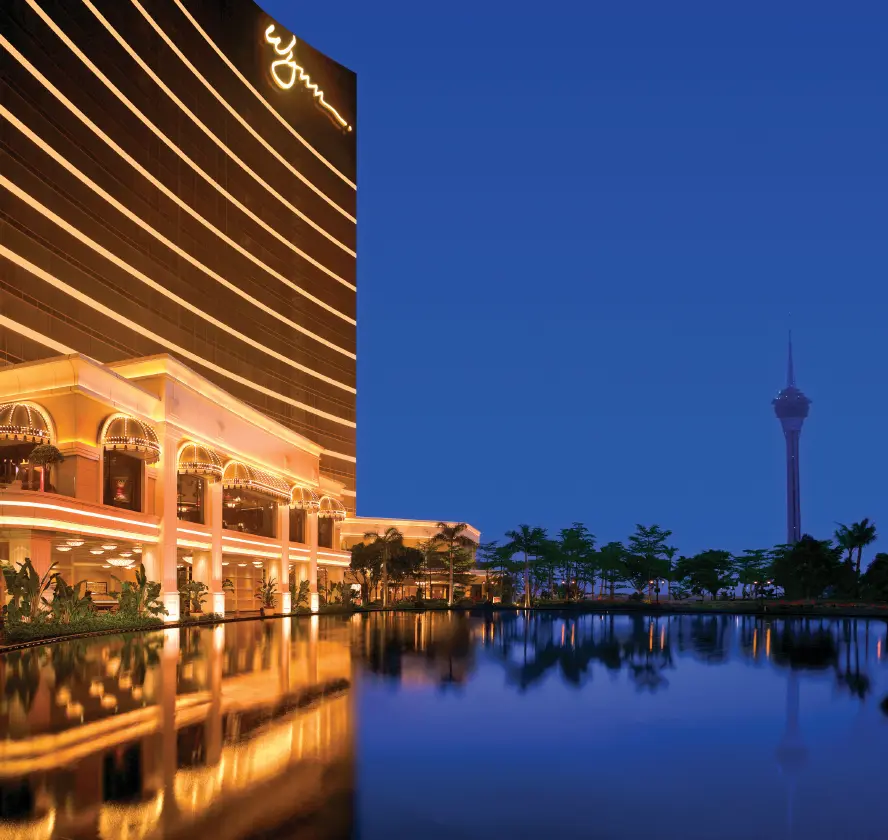 AWS: Moving to Macau, what are the main opportunities and challenges in your mind in this sort of new phase of Macau we’re in right now?
AWS: Moving to Macau, what are the main opportunities and challenges in your mind in this sort of new phase of Macau we’re in right now?
CB: I first went to Macau in 2004 and today I go there a lot – six or seven times a year, and the development that has happened over the course of the past 20 years in Macau is nothing short of amazing, truly amazing. Now Macau is trying to broaden and diversify its appeal, and we’ve seen this before. This happened in Las Vegas. Generally speaking, the way that works is capital gets deployed, and it gets deployed into things that either work or don’t. If they don’t work, they’re dispensed with. It’s like the comment I made earlier in terms of how Vegas continues to diversify. If they do work, they’re generally mimicked and expanded, and the market moves forward. There’s a lot of capital being deployed in Macau now, and I would guess that it will follow a similar pattern.
So, I think Macau will ultimately achieve its goal. It just takes time. Now, today, you have to maintain the confidence of those sources of capital. It’s very important, which means you have to drive cash flow out of your assets today.
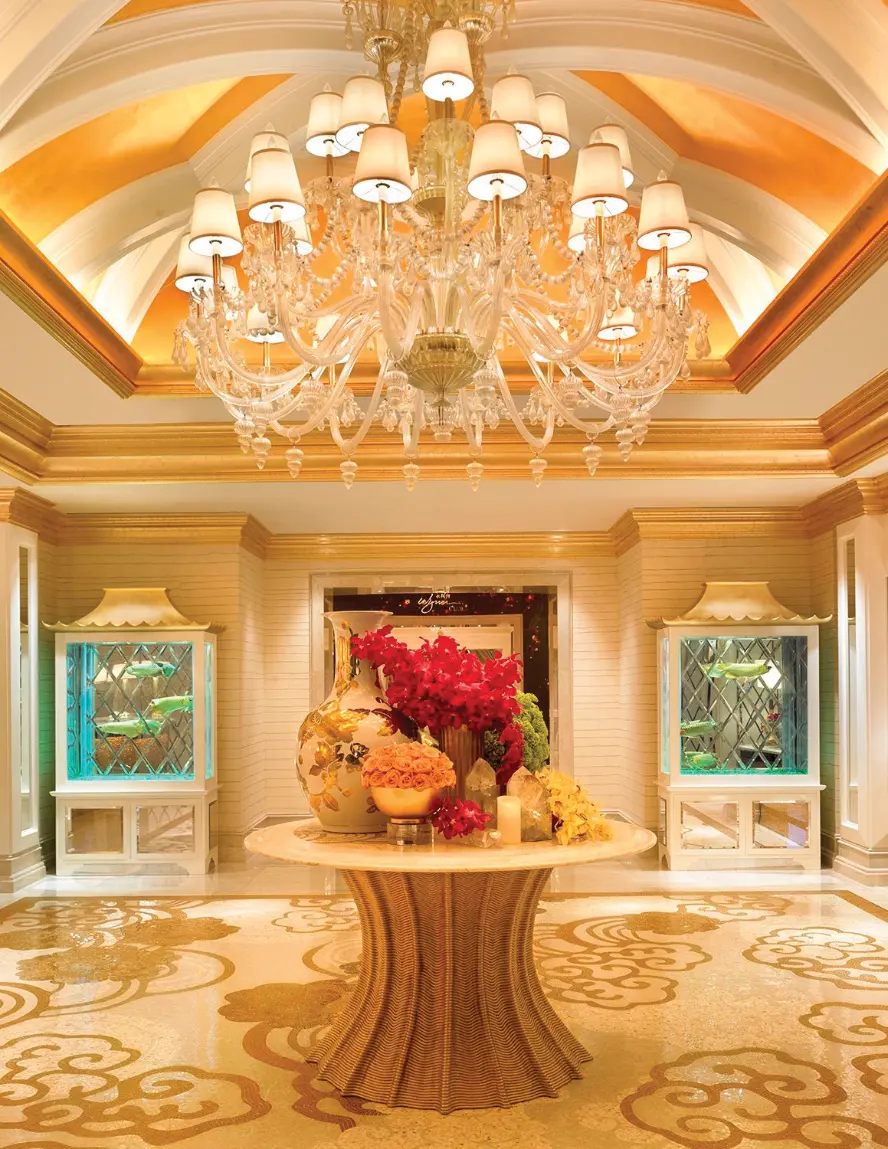 Really, you’re balancing between driving the gaming business today in order to create cash flow that will allow the operator access to capital that will, in turn, allow the operator to continue to deploy capital and then diversify their business.
Really, you’re balancing between driving the gaming business today in order to create cash flow that will allow the operator access to capital that will, in turn, allow the operator to continue to deploy capital and then diversify their business.
That’s a really delicate balancing act, and the capital markets want to see a robust free-cash-flow profile. They want to see you working hand-in-hand with government. And they want to understand that trajectory, which is even more difficult to do in a market that has relatively few hotel rooms. It’s actually hard to justify today filling a room with a cash paying customer which is what you need for diversification. That means, long term, an increase in the room base has to be part of the diversification strategy in Macau.
That’s a challenge we have today, but I’m incredibly bullish on Macau. I am fascinated by how this transition will take place, and I know how we will play our part in that transition.
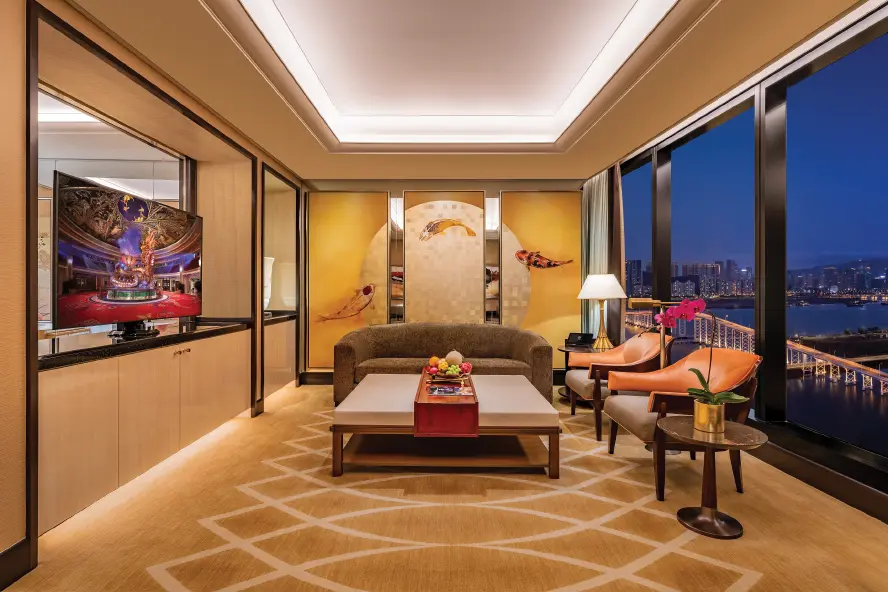 AWS: Speaking of rooms, Macau has only got 43,000 compared to 150,000 in Las Vegas, yet the trend is to knock down walls between rooms to make more suites to serve the premium mass customer. This is actually reducing the key count but making more luxurious rooms. Where does Wynn sit on that?
AWS: Speaking of rooms, Macau has only got 43,000 compared to 150,000 in Las Vegas, yet the trend is to knock down walls between rooms to make more suites to serve the premium mass customer. This is actually reducing the key count but making more luxurious rooms. Where does Wynn sit on that?
CB: Macau is an incredibly competitive market. The concessionaires there are incredibly capable operators, so every aspect of the business matters. The room product matters, the food and beverage matters, the promotions matter. And you have to pay attention to every single one of them.
We are built for the best customer in the market, and our unique combination of room, product and service continues to allow us to punch well above our fair share from a market share perspective relative to tables. So, I’m very, very bullish on our ability to compete.
Do we need more rooms? Obviously. We’re running at 98% or 99% capacity so yes, we need more rooms, and we’re aware of that and we’re on it.
Our stated capex program as part of our concession renewal is really focused on a couple of anchor projects. The first is an event center, and the second is a theater with a production show that we are creating from scratch.
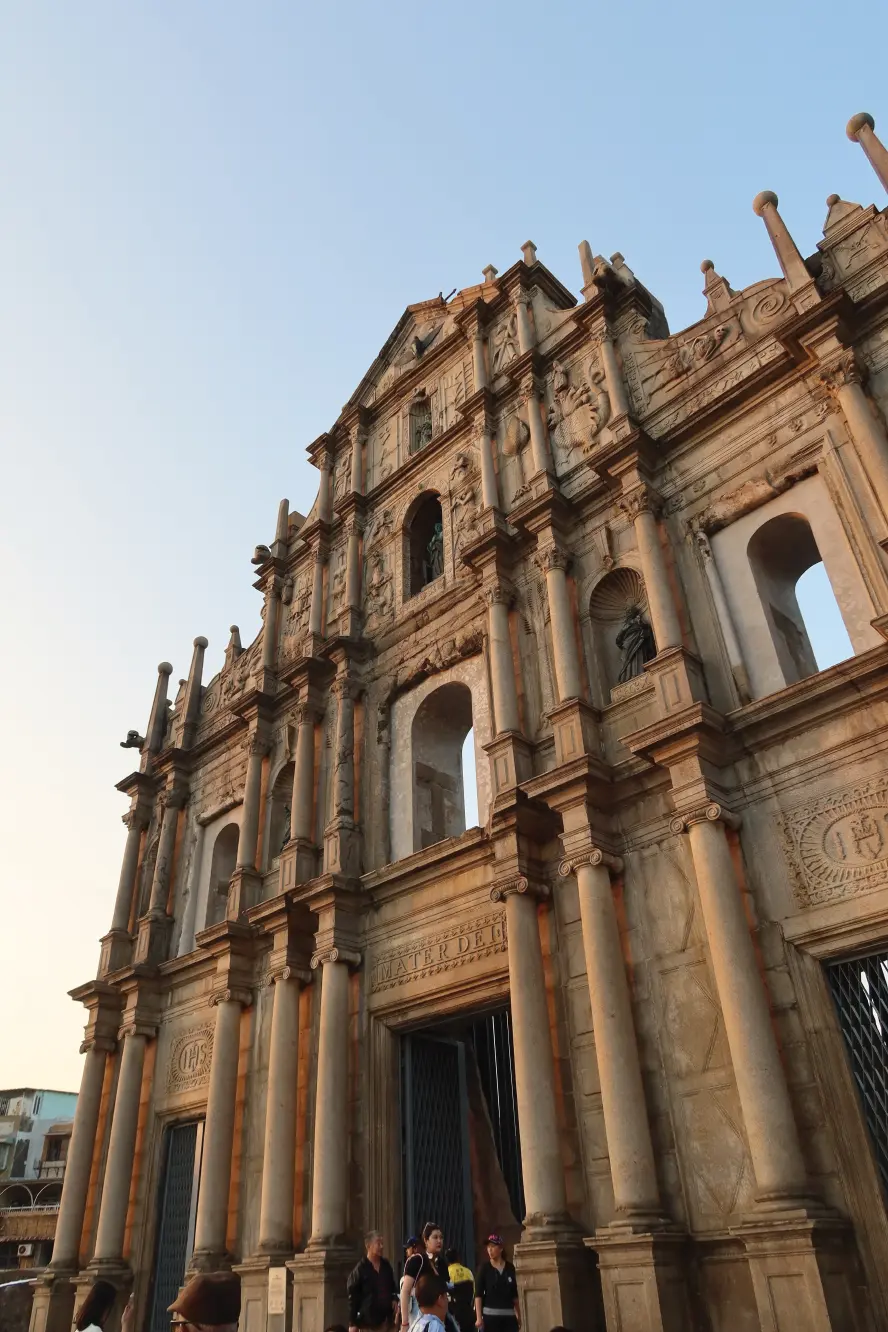 Incidentally, we opened as part of our concession capex an immersive center called Illuminarium which is a family friendly, immersive experience. I do think that we’ve learned here in Vegas, frankly, that entertainment is an important part of market transition. If you look at what’s happening in Las Vegas today, you can see entertainment is absolutely critical. A lot of the entertainment that you’re seeing in Macau is very focused on the gaming customer, but that has a natural knock-on effect. The same thing happened in Las Vegas – there is a natural knock-on effect where you can start to drive non-gaming visitation. Of course, you need the rooms to house those visitors in, but you can start to drive non-gaming visitation.
Incidentally, we opened as part of our concession capex an immersive center called Illuminarium which is a family friendly, immersive experience. I do think that we’ve learned here in Vegas, frankly, that entertainment is an important part of market transition. If you look at what’s happening in Las Vegas today, you can see entertainment is absolutely critical. A lot of the entertainment that you’re seeing in Macau is very focused on the gaming customer, but that has a natural knock-on effect. The same thing happened in Las Vegas – there is a natural knock-on effect where you can start to drive non-gaming visitation. Of course, you need the rooms to house those visitors in, but you can start to drive non-gaming visitation.
So, we’re big believers in spectacle and in entertainment, and that’s where the bulk of our announced capex is going.
AWS: Diving down a little bit more on that capex, your commitment was US$2.1 billion over 10 years as part of the new concession agreement you signed with the Macau government in late 2022. Could you give a little bit more color on your intentions, and the potential ROI on that commitment?
CB: I’m not going to speak to very specific return targets. What I would say is we were incredibly intentional as we went through the concession renewal process with respect to what we were ultimately signing up for, and that is a combination of capex and opex.
On the capex side, like I mentioned, we were very, very focused on entertainment as a driver because Wynn and its predecessor company, Mirage Resorts, kind of invented the modern-day version of that category. So we understand the role that it can play in the market. As you have seen, with entertainment that has been rolled out in the market so far, it has driven market share advantages and it has driven returns. So I do feel good about our ability to earn a return on that capex.
On the opex side, the way that we think about it is how do we program the building in a way that is appealing to today’s customers and builds the brand for tomorrow’s customers? You’ve seen that with the hypercar event in Macau, with all the F&B programing that we’ve done, and the golf. All of that is important because it impacts the customer – the primarily gaming customer – today. It also helps you build brand for the future.
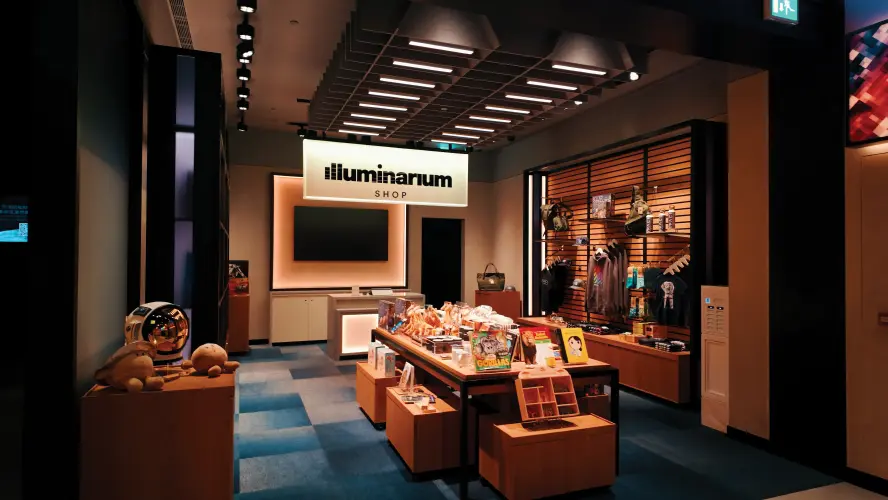 AWS: You mentioned before it’s a hyper-competitive market in Macau, and these days it truly is. Do you believe you can grow your market share in that hyper-competitive market, given that Wynn was somewhat built for the VIP customer, a sector that is arguably not as important as it once was?
AWS: You mentioned before it’s a hyper-competitive market in Macau, and these days it truly is. Do you believe you can grow your market share in that hyper-competitive market, given that Wynn was somewhat built for the VIP customer, a sector that is arguably not as important as it once was?
CB: I have this conversation regularly with investors and with others. Whether a customer is playing with credit or cash, whether a customer is categorized as VIP or mass, those are distinctions in funding sources. The premium customer is a premium customer across the board, and that is our customer.
So, there is a reason that we reopened out of COVID and delivered market share that was consistent with where we closed 2019, despite the fact that junkets went away. I think we’ve proven that we are incredibly capable in an ex-junket world for several years now.

Competition is fierce and that means we have to get better and better and keep innovating and improving our products and services. With respect to market share, as you know far better than most, it’s actually not about the occupancy that you have in the hotel. It’s who is in the rooms. If you think about Wynn Palace, the finest hotel in Asia in my opinion, of course we have the opportunity to grow market share because we have the opportunity to make the best and most productive use of our rooms.
Could we use more rooms? For sure we could. And yes, we have the ability to do that. Wynn Macau [on the Macau peninsula] is a little bit of a different story. We just came through a pretty significant renovation cycle at Wynn Macau, not so much in dollars but in what we touched. And we’ve got that property fit for purpose. It’s a different customer down there, a more transient customer, and we need to be more extroverted in terms of our marketing to that transient customer.
AWS: Let’s move to the UAE, which may well be the most interesting thing that’s happened in the global integrated resort industry for many, many years. Why is this such an exciting market for you?
CB: Let’s start with a global map and work down. If you look at a global map, you’ll see that there’s essentially a third or half of the planet that doesn’t have a proper integrated resort. So, if you just think about it from a pure supply and demand perspective, there’s zero supply and a ton of demand, which is a good setup in general.
Then you move down one level. The UAE is an incredible place. Some of the best governance in the world is emanating from the UAE these days. It’s stable, it’s predictable, investors are lauded and respected. It’s a wonderful place to do business. Dubai airport, which is less than an hour away, is one of the largest airports in the world and handles over 80 million passengers a year. There are 10 million locals. Compare that to a US city.
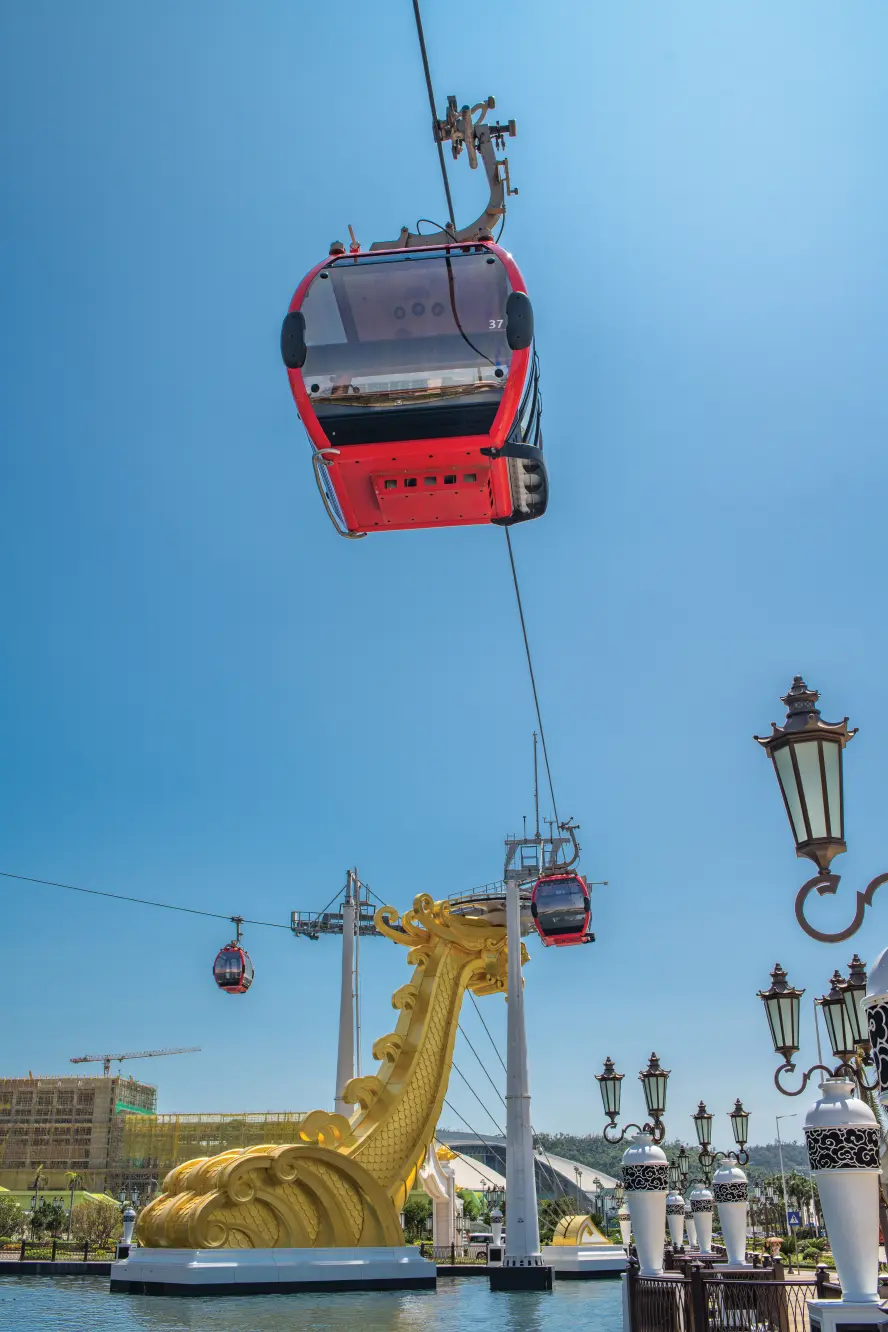
The general setup is very, very good, which is why several on the sell-side community have presented their opinions that the market should be equivalent to Singapore. And they’ve published numbers indicating that. You have very high GDP per capita, and you have a strong willingness to spend on luxury products, so it’s a pretty good market structure for us.
AWS: I noted that during your investor day presentation in October the development cost of Wynn Al Marjan Island quietly crept up from US$4 billion to US$5.1 billion, which is a lot of money, albeit not outrageous in this day and age. You’ve also mentioned 70 acres of land available for future expansion, which is super interesting to me. Do you have anything in mind for that land, in terms of what we might see and further investment levels?
CB: First, let me address the first portion of what you’re saying. In the previous budget we had presented, we were very explicit that it did not include capitalized interest. We didn’t know the financing structure, so you’re right, there was a budget increase. With the US$5.1 billion we had line of sight on the financing structure, so we were able to quantify capitalized interest.
We also spent an extraordinary amount of time in the investor day itself outlining the level of buyout that we have achieved on that budget and where we will be from a buyout perspective.
And with our land bank in the UAE, there’s a lot of additional future investment opportunity there. But right now, we’re very focused on getting Wynn Al Marjan open and making sure that we have the appropriate market fit for all the various components that we’re putting together. Regarding the incremental land: there’s not much to talk about right now. Stay tuned.
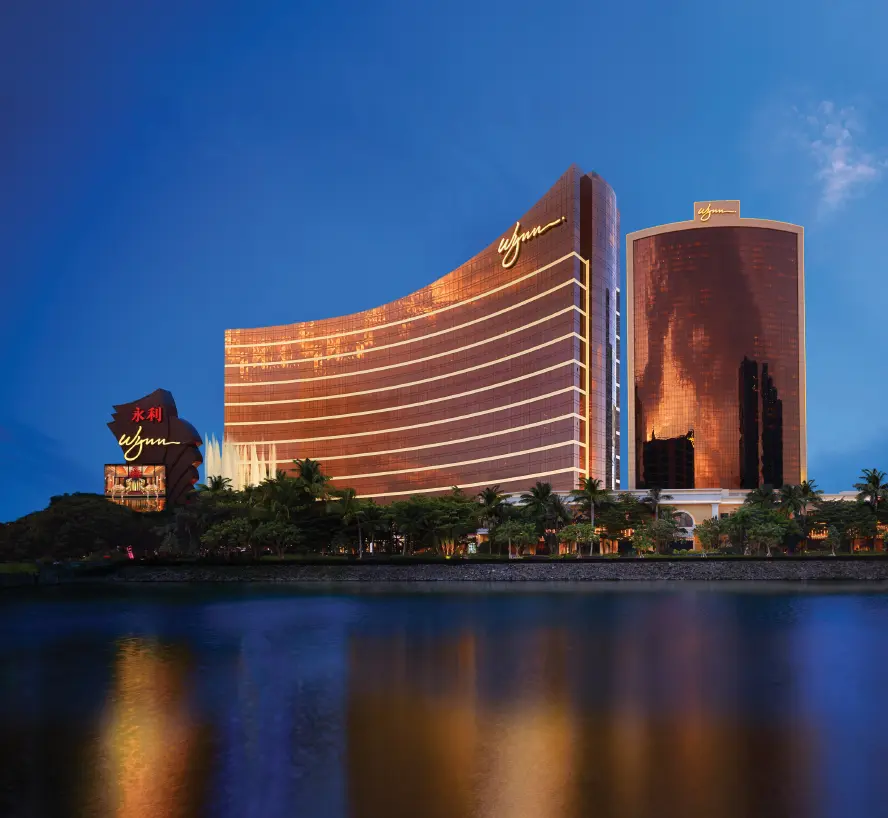 AWS: What can we expect from the finished product?
AWS: What can we expect from the finished product?
CB: We have a long and storied history of design and development. At the core of what you should expect is a property that delivers on the layered opulence that you would expect from a Wynn resort. A traditional Wynn resort customer will be able to walk into that property and say, “Ah, this feels familiar.”
But there are also a lot of opportunities for evolution – evolution in how we program the building from an amenities perspective, and evolution in finishes and interiors. That will really be the next iteration of who this company is. I’m blessed because I have by far the lion’s share of the design and development folks going all the way back to the Golden Nugget to work with every day to design this property, so there’s a deep sense of what our legacy is and a real opportunity to evolve.
From a programming perspective, what do we sell? We sell luxury, glamor and fun. And if you go to Dubai, this is a market that loves luxury, glamor and fun. So, this is a property that will be specifically programmed for a market that embraces all three of those things. And in the category of fun: beach club; nightclub; moody, frenetic, louder restaurants – things like that. You’re going to find that there is a lot for people to do.
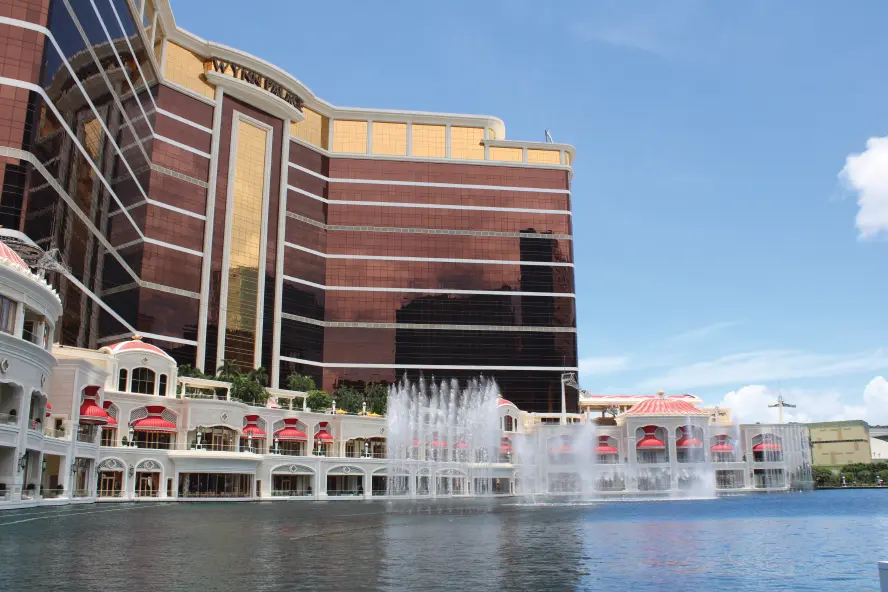 AWS: There has been a lot of talk of future licenses, whether in Abu Dhabi or Dubai or elsewhere. What are your thoughts on that? Would you see other IRs as complimentary or as possibly cannibalizing Al Marjan?
AWS: There has been a lot of talk of future licenses, whether in Abu Dhabi or Dubai or elsewhere. What are your thoughts on that? Would you see other IRs as complimentary or as possibly cannibalizing Al Marjan?
CB: We do pretty darn well in the two most competitive markets in the world. We’re 4,700 keys out of 150,000 keys in Las Vegas and 2,700 keys out of 40-something thousand in Macau, and we do pretty well. The licensing process in other Emirates has actually been incredibly quiet so far. So, no matter what, I expect we will have a very, very sizable head start. But we actually built all of our forecasting for the business assuming we would have an additional competitor.
Frankly, we wouldn’t have a problem with that at all. We believe in the cluster effect. Singapore is a good example. If we can compete on the Las Vegas Strip and we can compete in Macau, we’re going to do just fine in a duopoly.
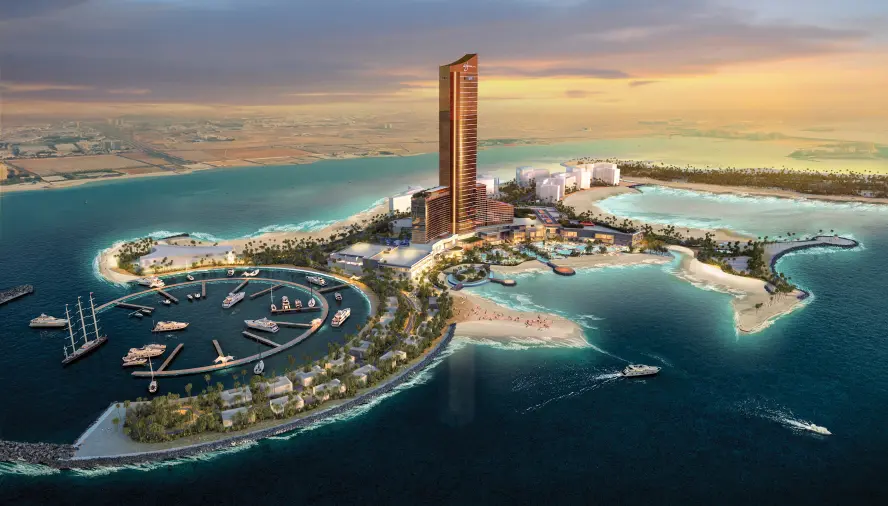
AWS: What about the geographical side of things? Las Vegas and Macau are very tight clusters where it’s 10 minutes from here to there, but it’s a little different in the UAE.
CB: Think about the early days of Macau, when Macau was heavily pitched – at least in the investment community – based on its proximity to Hong Kong.
But even then, you have a 45-minute ferry ride.
You have immigration you have to go through. Here you’ve got a 45-minute to an hour drive on one of three six-lane highways with no cross-border immigration. So, the proximity doesn’t concern me at all given what we offer and given the quality of what we do. I am very confident in our ability to be competitive in that market.
It’s all somewhat academic now though, because those additional Emirates have not emerged. The best thing we can do is build an amazing product to Wynn standards, deliver Wynn-style service and build our database. That’s the best we can do, and I think that our returns will be substantial in that market.
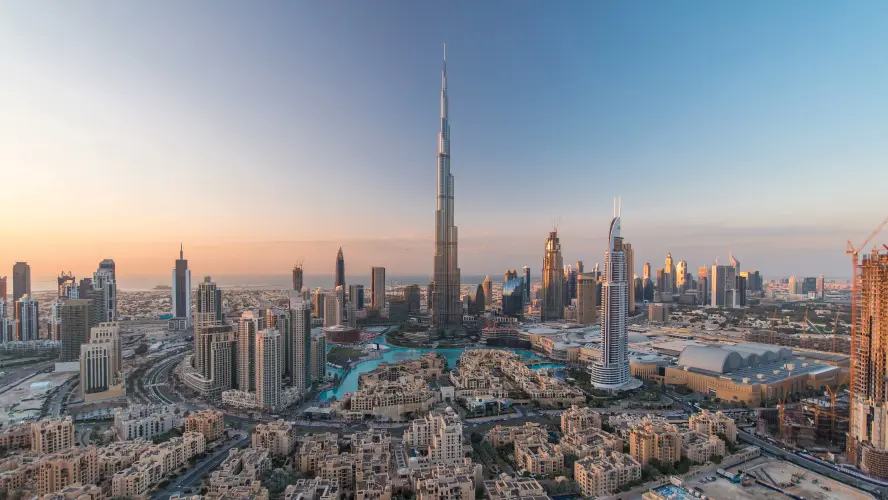 AWS: Speaking of database, you recently acquired Aspinalls in London from Crown Resorts. Aspinalls is a very prestigious high-end property with a storied history, and one close to my heart given my long history with Crown. Why did you buy it? Is it purely a database play given the long history of Middle Eastern players in London, or is there more behind it?
AWS: Speaking of database, you recently acquired Aspinalls in London from Crown Resorts. Aspinalls is a very prestigious high-end property with a storied history, and one close to my heart given my long history with Crown. Why did you buy it? Is it purely a database play given the long history of Middle Eastern players in London, or is there more behind it?
CB: It’s a small acquisition. I’ve always admired the heritage real estate nature of that property, but really, it’s an extension of the Al Marjan casino floor. We have many, many customers that we are already talking to and encountering in that region who spend a significant amount of time in the UK. After the opening of Marjan, 95% of the world’s population will be within an eight-hour flight of a Wynn property.
London is an incredible gateway city. It will always go through its ebbs and flows, but London will always be London, and the ability to interact with and delight those customers in that market is important. The second component is, and you mentioned it, it’s a great way to jumpstart a database into the opening of Wynn Al Marjan. It caters to a very high-end customer, and it doesn’t take many of those to ultimately earn a return on that business.
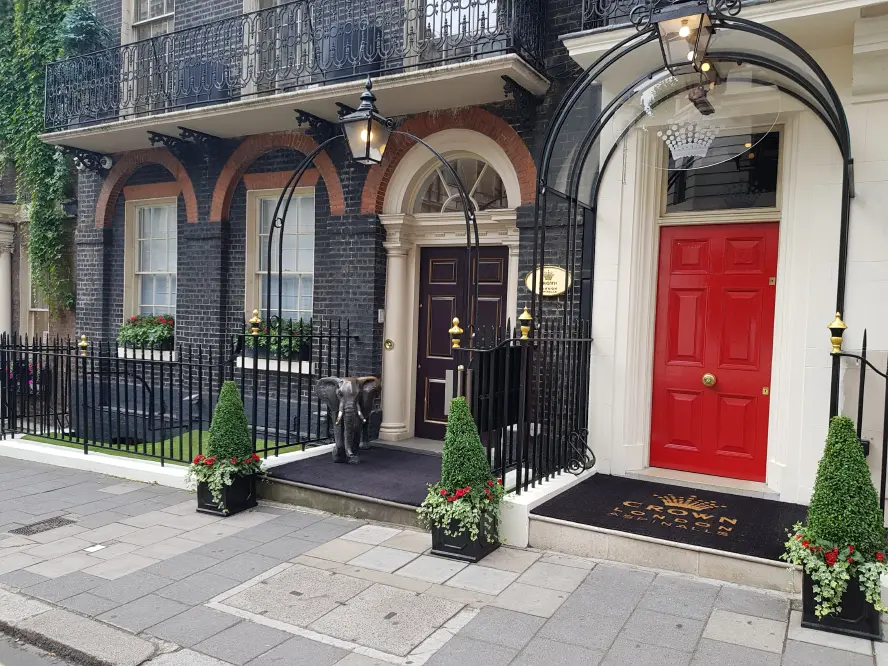
AWS: Looking further afield, Thailand is a hot topic in Asia right now. Do you have the bandwidth to look at it when it comes up?
CB: I think Thailand is moving rather expeditiously. Obviously, it is still early days and there is a lot we need to see. If you think about the set up in Thailand, you have very significant transportation infrastructure, you have a well-developed economy, a well-developed business infrastructure, an incredible service culture. Thailand’s a very interesting market, but the devil is in the detail of course.
From Thailand’s perspective, obviously I’m biased but I think Wynn is an incredible choice, because Thailand has mass market tourism and what we deliver is high value, affluent tourism. And I think that’s ultimately beneficial for Thailand. We’ll see.
Do we have the bandwidth to do it? Well, I think we are the only company left that does full-scale design, development and construction management in-house, so we certainly can’t build 10 of these at once, but do we have the bandwidth to do it? Certainly we do, and we find Thailand an attractive market.
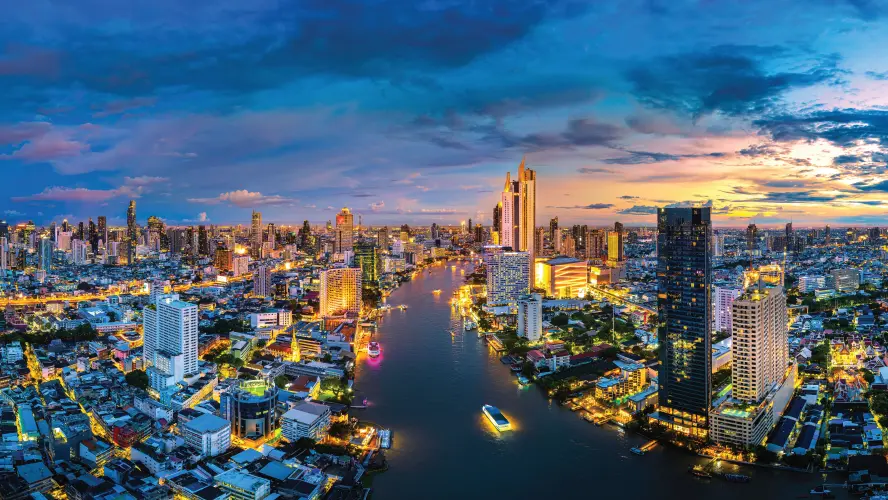 AWS: Would it be the case that you’d only be interested in Bangkok?
AWS: Would it be the case that you’d only be interested in Bangkok?
CB: If you were to forecast the revenue opportunities in each of the markets, I think you would naturally be led to Bangkok.
AWS: Craig, it’s been both engrossing and a pleasure to chat. I’m sure the readers of IAG will be fascinated by this interview. Thank you for agreeing to it.
CB: You’re very welcome.






